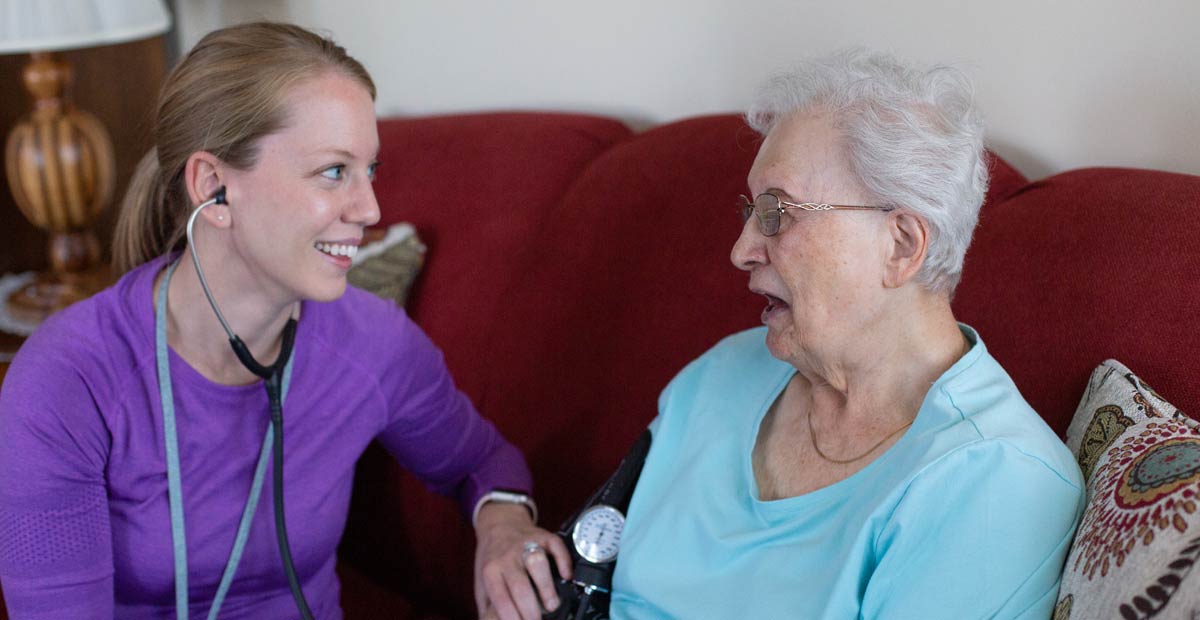In less than two decades, the graying of America will be inescapable: Older adults are projected to outnumber kids for the first time in U.S. history, according to the U.S. Census Bureau. Families needing an extra set of hands have a few options to choose from.
Home health and home care are two distinct types of services to help aging individuals manage their health while providing them with a high-quality lifestyle. Many people get confused by the two services and part of her role is to help educate residents.
Home health care often includes the administration of or education about newly prescribed medication, medical testing, caring for a wound or injury and help for those recovering from an illness using various types of therapy, including physical, occupational and speech-language. This type of care is typically necessary after someone has been hospitalized, is undergoing rehabilitation or is transitioning out of a nursing facility. There are no set hours for home health and the average length of service is usually about 60 days or until the patient is no longer homebound.
The goal of home health is to get the patient back on their feet and living independently.
Home care focuses on providing older adults with assistance in their daily activities occasionally or for an extended period of time. Depending on the individual’s needs, a homemaker might assist with meal prep, laundry, light housework, bathing, transportation and mobility. They may even simply provide companionship.
Another difference between home health and home care is price. Home health is covered by medical insurance, including Medicare and Medicaid. Home care is paid for out-of-pocket and may last for a longer period of time.
Masonic Village at Elizabethtown offers home health, home care and hospice services. Staff empower patients to be educated on the services available to them in order to continue to age safely in the comfort of their home, which can help reduce ER visits and re-hospitalizations and improve overall quality of life.





